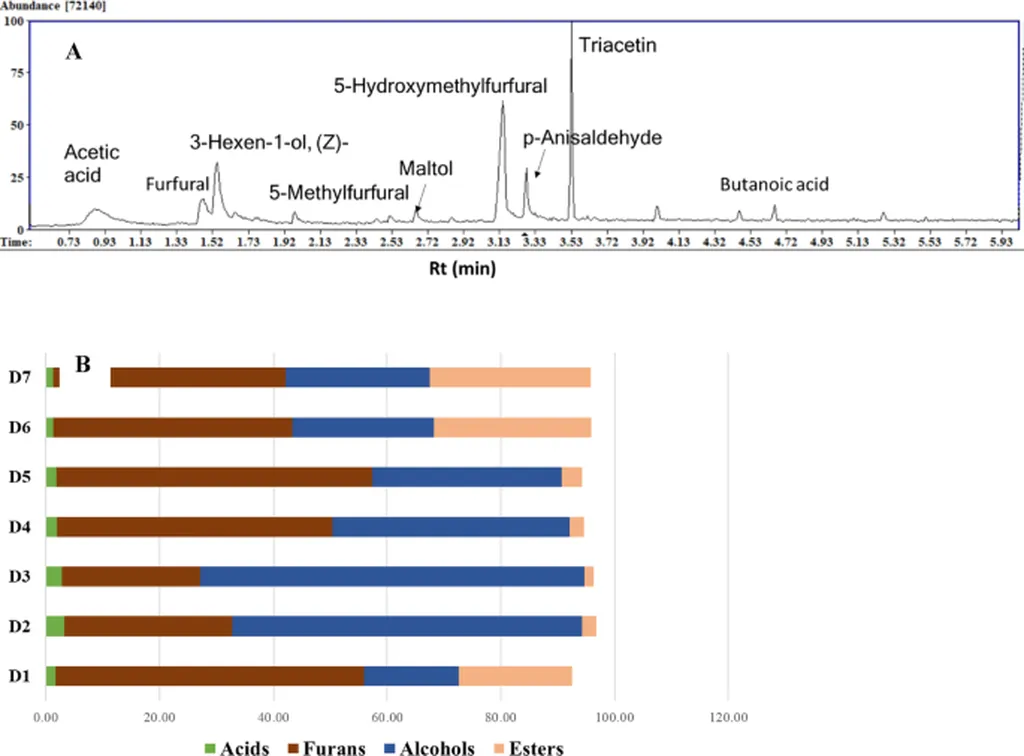In a recent study published in the journal ‘Scientific Reports’ (translated to English as ‘Scientific Reports’), researchers led by Rabab M. Abdou from the Pharmacognosy Department at Cairo University’s Faculty of Pharmacy, have delved into the chemical composition and antioxidant properties of date syrups from Egypt and Saudi Arabia. The study, which employed advanced techniques like GC-MS and UHPLC-MS, offers valuable insights into the nutritional value and potential health benefits of these syrups, with implications for the food industry and maritime trade.
Date syrup, a staple in Middle Eastern cuisine, is prized for its sweetness and nutritional value. The study analyzed seven commercial date syrup products, identifying a plethora of metabolites. Using GC-MS, the team identified 36 primary metabolites, including sugars, sugar alcohols, fatty acids, and organic acids. “Sugars and sugar alcohols amounted for ca. 97.04%, dominated by mono-sugars,” noted the researchers, highlighting the syrup’s potential as a natural sweetener.
The aroma profiling revealed 17 volatiles, with furans being the major class in most products, likely produced during processing. Interestingly, samples D2 and D3 were dominated by alcohols at ca. 64%, suggesting variations in processing or origin. The study found that classification of date products was more reliable using silylated metabolites than from the aroma dataset.
UHPLC-MS analysis identified 77 metabolites, including sugars, phenolic acids, flavonoids, lignans, and fatty acids. Notably, 33 of these metabolites are reported for the first time in Phoenix dactylifera, the scientific name for the date palm. The antioxidant effect of date syrups was attributed to their relatively high total phenolic and flavonoid contents.
For maritime professionals, this research underscores the potential of date syrup as a high-value, nutritious commodity. The study’s detailed profiling of date syrups from various origins can guide quality control and authentication processes, ensuring that only the best products reach the market. Moreover, the identification of new metabolites in date syrups opens up opportunities for product differentiation and marketing, appealing to health-conscious consumers.
The study also highlights the importance of understanding the chemical composition of date syrups for their potential health benefits. As the global demand for natural, healthy, and functional foods continues to grow, date syrup stands out as a promising ingredient. This research provides a solid foundation for further exploration of date syrup’s nutritional and health-promoting properties, benefiting both the food industry and consumers alike.
In the words of the lead author, Rabab M. Abdou, “This study provides, for the first time, detailed profiling of date syrups from various origins to elucidate their nutritional composition and potential health benefits.” This work, published in ‘Scientific Reports’, not only advances our understanding of date syrup but also paves the way for its increased utilization in the global food industry.

